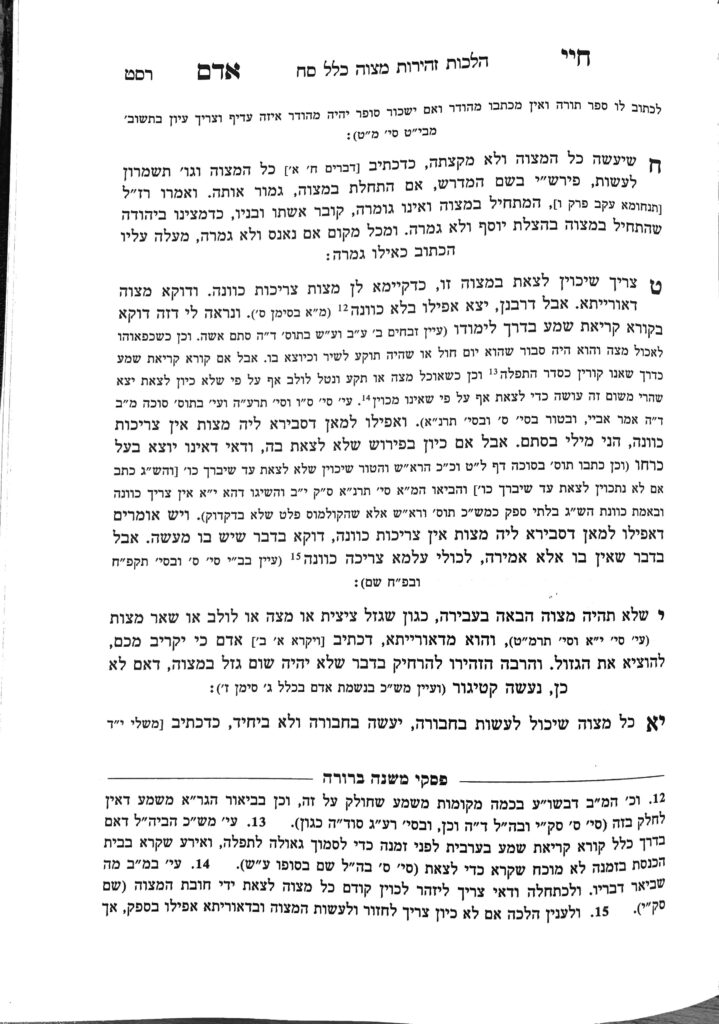We are continuing in siman 9, which discusses the concept of mitzvos tzrichos kavana. We will clarify the idea that doing mitzvos without kavana may be considered not performing a mitzvah, as we learned yesterday.
There is a sefer which discusses the many mitzvos people do throughout the day for which they do not have kavana. As we learned, a person only receives reward for a mitzvah if they have kavana to perform the action for the sake of performing a mitzvah. The Biur Halacha takes it a step further, and writes that if we hold that one is not yotzei without the proper kavana, there are issurim which may arise. For example, if one wears a four-cornered garment, they are chayav to put tzitzis on it. If they wear the tzitzis without kavana, and we understand that they have not fulfilled the mitzvah of tzitzis, it comes out they are wearing a four-cornered garment without tzitzis. As another example, if one eats in the sukkah without having kavana, they have nullified a mitzvah deoraysa of sitting in the sukkah, so it comes out that they have essentially eaten outside of the sukkah.
We will discuss some other examples of situations where one does not perform the mitzvah without having kavana:
- When taking care of one’s parents, with the proper kavana one fulfills:
- Kibbud av v’eim;
- Ve’ahavta lereiacha kamocha (because the child is taking care of their parents the same way they would want to be taken care of);
- If the father is a talmid chochom, bo sidbak;
- Ish imo v’aviv tira’u;
- If the parents are old, mipnei seivah takum;
- Possibly almanah ve’yason lo sa’anun, which Rashi points out is not limited to widows and orphans, but to any underprivileged people;
- Ona’as devarim.
- When a person honors shabbos, they fulfill the mitzvah derabanan of vekarasa lashabbos oneg and the mitzvah deoraysa of lo sasur.
- The Arizal holds that when one answers kaddish and kedusha, they fulfill the mitzvah deoraysa of venikdashti besoch bnei yisroel.
These are just some of the many mitzvos which we perform throughout our day, where, without proper kavana to fulfill them, one does not receive the sechar for fulfilling them.



